Disability rights in India have come a long way, thanks to the continuous efforts of activists, organizations, and, most importantly, the Indian judiciary. While laws and policies provide the foundation for protecting the rights of persons with disabilities, it is the courts that ensure these laws are enforced and interpreted in ways that promote true inclusion and equality.
Over the years, the Indian judiciary has played a significant role in shaping disability rights, holding governments accountable, and expanding the scope of legal protections for persons with disabilities. Many landmark judgments have addressed issues such as employment discrimination, accessibility in public spaces, inclusive education, and social security benefits. These decisions have not only reinforced existing laws but have also paved the way for stronger legal frameworks.
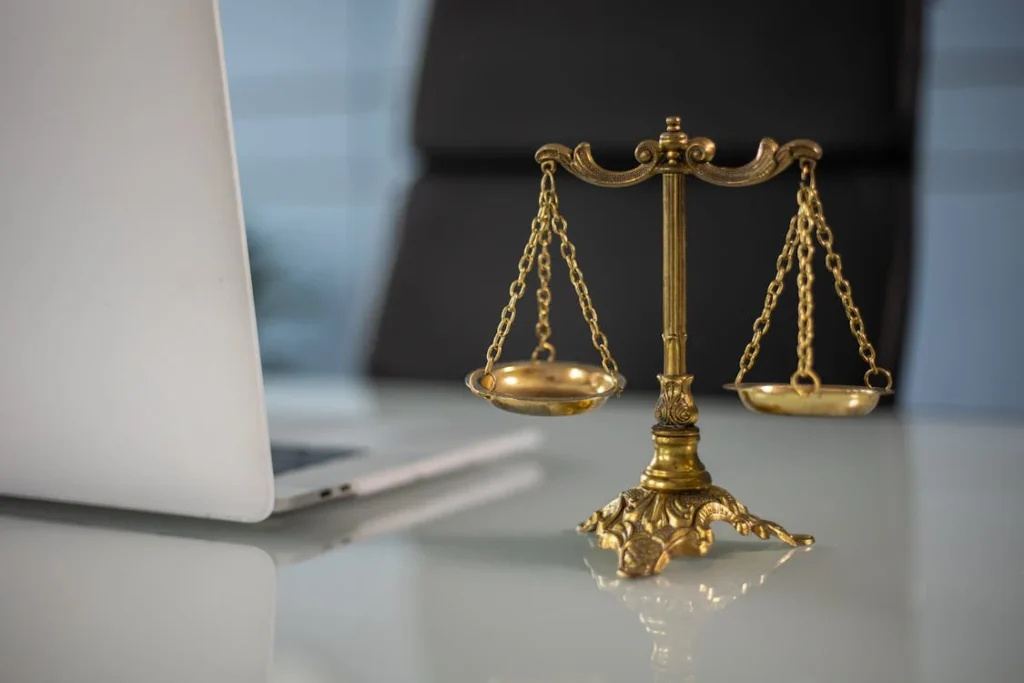
The Evolution of Disability Rights Through Landmark Court Judgments
Early Judicial Interventions: Recognizing Disability Rights
In the early years, disability rights were not widely discussed in India’s legal system.
Although the Persons with Disabilities (Equal Opportunities, Protection of Rights and Full Participation) Act, 1995 was an important step toward inclusion, its enforcement was weak, and many government and private entities failed to implement its provisions.
This led to numerous legal battles where the judiciary had to step in to ensure that the law was not just on paper but actively practiced.
One of the earliest cases that brought disability rights into focus was National Federation of the Blind v. Union of India (1993). This case challenged the lack of employment opportunities for visually impaired individuals in government jobs.
The Supreme Court ruled that job reservations for persons with disabilities must be implemented properly, leading to stronger enforcement of employment quotas and greater awareness about workplace inclusion.
Strengthening Employment Rights for Persons with Disabilities
One of the most significant contributions of the Indian judiciary has been in the area of employment rights. Many persons with disabilities face discrimination when applying for jobs, even when they meet the required qualifications.
Courts have repeatedly intervened to uphold their right to equal employment opportunities.
A defining moment came in the case of Union of India v. National Federation of the Blind (2013), where the Supreme Court reinforced the mandatory 3% reservation for persons with disabilities in government jobs, as provided under the 1995 Act.
The court criticized the government’s failure to implement these quotas and directed authorities to ensure strict compliance. This judgment had a far-reaching impact, forcing government departments to finally take disability reservations seriously.
Another major ruling came in Vikas Kumar v. Union Public Service Commission (2021), where the Supreme Court addressed the rights of persons with disabilities in civil services.
The petitioner, who had a disability, was denied the necessary accommodations during the selection process. The court ruled that equal opportunities must be provided in competitive exams, reinforcing the need for fairness in hiring and selection procedures.
These cases have established a strong legal precedent that persons with disabilities cannot be denied jobs or career advancements simply because of their condition.
The judiciary has played a vital role in ensuring that employment laws are properly implemented and that disabled individuals have an equal chance to succeed in their professional lives.
Expanding Accessibility and Public Infrastructure Rights
Accessibility is one of the biggest barriers faced by persons with disabilities in India. Despite laws mandating accessible public spaces, many government buildings, transport systems, and educational institutions remain difficult to navigate for individuals with mobility impairments.
The courts have been instrumental in enforcing accessibility laws and ensuring that the government takes its responsibilities seriously.
In Rajive Raturi v. Union of India (2017), the Supreme Court ruled that all public buildings must be made accessible to persons with disabilities.
The case was filed by a visually impaired petitioner who argued that government buildings, roads, and transport systems were not designed for disabled individuals.
The court directed authorities to implement the Accessible India Campaign effectively and ensure that buildings had ramps, elevators, and other necessary infrastructure.
This judgment forced government agencies to take accessibility more seriously and led to improvements in urban planning for disabled-friendly infrastructure.
Another landmark case, Disabled Rights Group v. Union of India (2018), focused on accessible transportation. The Supreme Court directed railway authorities to make stations and train compartments disabled-friendly.
It also asked airlines to provide better services for passengers with disabilities, such as priority boarding and better seating arrangements. These rulings pushed transportation providers to introduce more accessible facilities, though enforcement remains a challenge.
The Indian judiciary’s consistent rulings in favor of accessibility have helped accelerate the process of making public spaces more inclusive.
However, continued monitoring and stricter penalties for non-compliance are needed to ensure that accessibility is not just a legal obligation but a reality for all persons with disabilities.
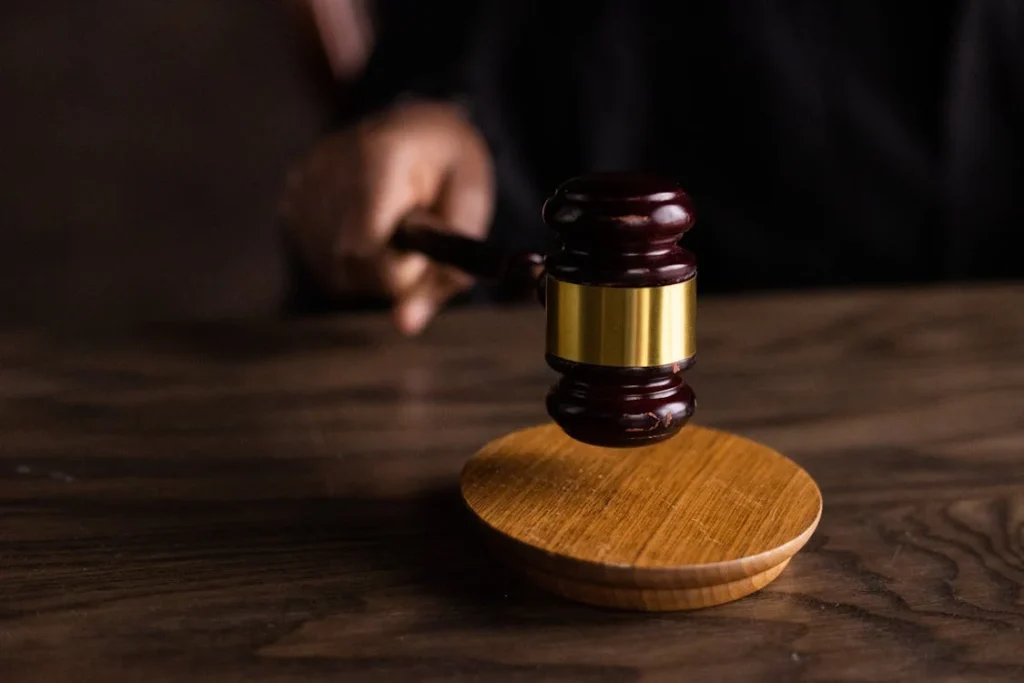
The Judiciary’s Role in Strengthening Education Rights for Persons with Disabilities
Ensuring Inclusive Education in Schools
Education is one of the most critical areas where the judiciary has intervened to protect the rights of children with disabilities.
While laws like the Right to Education (RTE) Act, 2009 and the Rights of Persons with Disabilities (RPWD) Act, 2016 mandate inclusive education, their implementation has often been weak.
Many schools have refused admission to children with disabilities, citing a lack of facilities or trained teachers. The courts have played a crucial role in ensuring that such discrimination is not allowed.
In Society for Unaided Private Schools of Rajasthan v. Union of India (2012), the Supreme Court ruled that private schools must reserve seats for economically disadvantaged students under the RTE Act, which also included children with disabilities.
This ruling ensured that children with disabilities could access quality education in mainstream schools rather than being confined to special institutions.
Another major victory for inclusive education came in Disabled Rights Group v. Union of India (2017), where the Supreme Court directed all schools—both government and private—to provide reasonable accommodations, including accessible classrooms, trained special educators, and assistive learning tools.
The court emphasized that inclusive education is not just about admission but also about creating an environment where children with disabilities can thrive academically and socially.
Higher Education and Exam Accommodations
The judiciary has also intervened to make higher education more accessible for persons with disabilities. Many universities and competitive examination boards have been reluctant to provide necessary accommodations, such as extra time, scribes, and assistive technology.
Courts have repeatedly ruled in favor of students with disabilities, ensuring that they are given an equal opportunity to succeed in their studies and careers.
A significant ruling in this area was Ayanavaram Venkatesh v. Union of India (2015), where a medical student with a disability was initially denied admission due to a technical interpretation of eligibility criteria.
The Supreme Court ruled in favor of the student, stating that disability should not be a reason to deny someone the opportunity to pursue their dreams.
This judgment set an important precedent for universities and professional institutions to be more accommodating to students with disabilities.
Similarly, in Amita v. Union of India (2020), the Delhi High Court ruled that students with disabilities must be provided extra time and scribes during competitive exams like UPSC, NEET, and JEE.
The court emphasized that denying reasonable accommodations would amount to discrimination and violate the RPWD Act.
These judgments have made it easier for students with disabilities to access quality education and compete on an equal footing with others.
However, many institutions still resist implementing inclusive policies, and continued legal enforcement is necessary to ensure full compliance.
The Push for Disability-Friendly Campuses
Apart from admissions and exams, the judiciary has also addressed the need for accessibility in college campuses. Many universities in India still lack ramps, elevators, accessible restrooms, and other basic infrastructure required for students with disabilities.
In Javed Abidi v. Union of India (2016), the Supreme Court ordered all higher education institutions to implement accessibility measures as per the RPWD Act.
It directed universities to introduce disability resource centers, hire trained counselors, and ensure that students with disabilities had access to assistive technology.
These judicial interventions have led to gradual improvements in making schools and universities more inclusive.
However, there is still much work to be done, especially in smaller towns and rural areas where educational institutions continue to lack proper disability-friendly infrastructure.
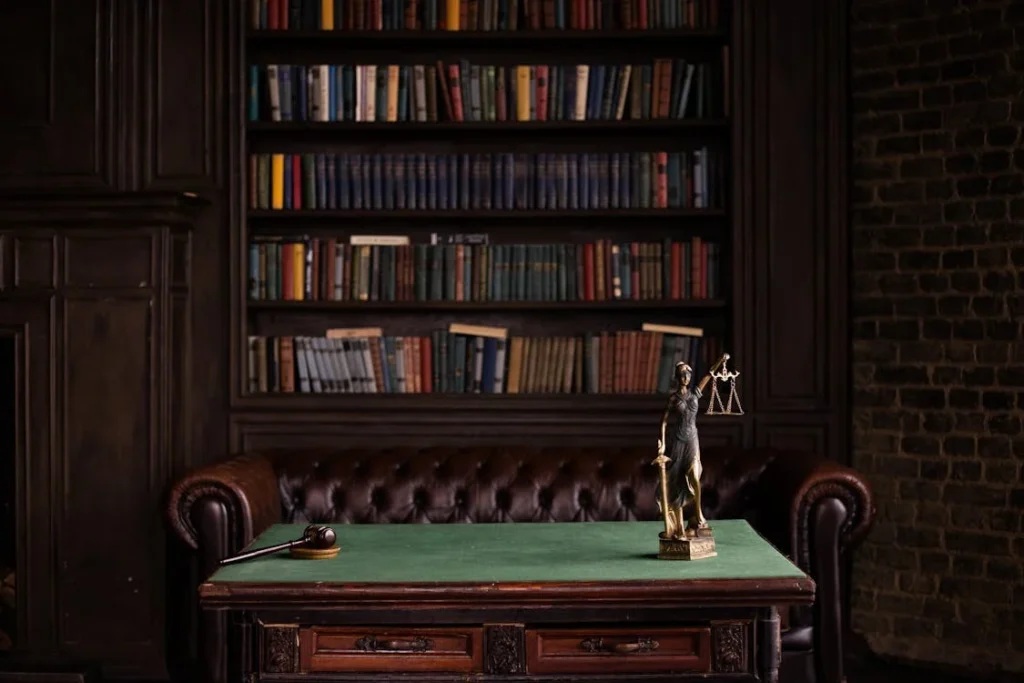
The Judiciary’s Role in Strengthening Social Security and Welfare for Persons with Disabilities
Ensuring Access to Disability Pensions and Financial Benefits
Financial independence is a major concern for persons with disabilities, many of whom face barriers in securing stable employment.
Government welfare schemes, including disability pensions, healthcare benefits, and assistive device subsidies, are designed to provide support. However, accessing these benefits is often challenging due to bureaucratic delays, corruption, and lack of awareness.
The Indian judiciary has played a crucial role in ensuring that persons with disabilities receive their rightful financial aid without unnecessary obstacles.
A landmark case in this area was Justice Sunanda Bhandare Foundation v. Union of India (2015), where the Supreme Court ruled that the government must ensure timely disbursement of disability pensions.
The case was filed after reports showed that thousands of eligible individuals were not receiving their benefits due to inefficiencies in the system.
The court directed state governments to streamline pension processes and ensure that funds reached beneficiaries without delays. This ruling pressured authorities to create more transparent systems for financial aid distribution.
Another significant judgment came in Deaf Employees Welfare Association v. Union of India (2016), where the Supreme Court ruled that persons with disabilities must receive priority access to social security schemes, including housing benefits, healthcare assistance, and employment reservations.
The court criticized government agencies for failing to implement welfare programs effectively and ordered corrective action to ensure full compliance with disability laws.
Strengthening Healthcare Rights for Persons with Disabilities
Access to healthcare is another area where the judiciary has made important interventions. Many persons with disabilities struggle to receive proper medical treatment due to inaccessible hospitals, lack of trained medical staff, and financial constraints.
Courts have consistently ruled that healthcare is a fundamental right for all, including persons with disabilities, and that government hospitals must be equipped to provide specialized care.
In Vinod Kumar v. State of Punjab (2019), the Punjab and Haryana High Court ruled that hospitals must provide priority treatment to persons with disabilities, ensuring that they do not have to wait in long queues for medical services.
The court also directed medical institutions to install ramps, sign language interpreters, and assistive technology to cater to patients with mobility, hearing, and vision impairments.
Another notable case was Akhil Bharatiya Viklang Sangathan v. Union of India (2021), where the Supreme Court emphasized the need for affordable and accessible healthcare for persons with disabilities.
The court ordered the government to expand insurance coverage for persons with disabilities under existing health schemes and to subsidize essential assistive devices such as prosthetic limbs, hearing aids, and wheelchairs.
This judgment led to increased government funding for disability-related healthcare services.
Protection Against Discrimination in Public Services
The judiciary has also played a key role in protecting persons with disabilities from discrimination in accessing public services.
Many individuals have faced rejection when applying for driving licenses, bank loans, or even passports due to outdated policies that fail to accommodate their needs.
Courts have repeatedly ruled that such discrimination is unconstitutional and violates the Rights of Persons with Disabilities Act, 2016.
In Kunal Singh v. State of Maharashtra (2018), a visually impaired individual was denied a government job despite clearing all required exams.
The Bombay High Court ruled in his favor, stating that employers cannot deny jobs to persons with disabilities based solely on their condition if they meet the necessary qualifications.
The court ordered the state government to revise its recruitment policies to ensure full compliance with disability rights laws.
Similarly, in Rajesh Sharma v. Transport Department (2020), the Delhi High Court ruled that persons with disabilities cannot be denied driving licenses if they meet the required safety standards.
The court criticized transport authorities for using outdated rules that discriminated against disabled applicants and directed them to update their regulations in line with global best practices.
Moving Towards a More Inclusive Welfare System
These judicial interventions have significantly improved access to social security, healthcare, and public services for persons with disabilities.
However, challenges remain, especially in rural areas where government programs are not effectively implemented. Courts have repeatedly emphasized that disability rights are not just legal obligations but fundamental human rights that must be actively protected by the state.
Moving forward, stronger enforcement mechanisms are needed to ensure that welfare schemes reach all eligible beneficiaries.
The judiciary’s role in upholding disability rights will continue to be crucial in pushing the government to take more proactive steps in building an inclusive and supportive society.
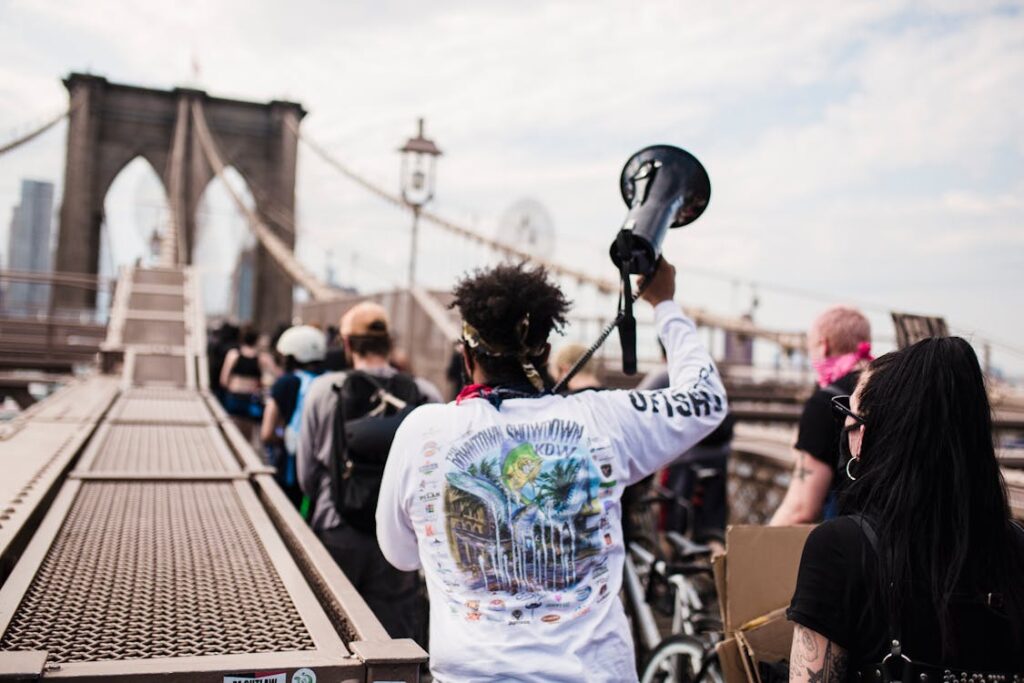
The Judiciary’s Role in Strengthening Political Participation and Representation for Persons with Disabilities
Fighting for the Right to Vote and Accessible Elections
One of the most fundamental rights in a democracy is the right to vote. However, for many persons with disabilities in India, participating in elections has historically been a challenge.
Inaccessible polling stations, lack of Braille ballots, absence of sign language interpreters, and difficulty in transportation have all acted as barriers to full political participation.
The judiciary has played a crucial role in ensuring that elections are inclusive and that every citizen, regardless of disability, can exercise their right to vote.
In Disabled Rights Group v. Election Commission of India (2007), the Supreme Court ruled that the Election Commission must ensure accessible voting for persons with disabilities.
The court directed polling booths to have ramps, Braille-enabled electronic voting machines (EVMs), and wheelchair accessibility.
This judgment led to a significant shift in election procedures, with polling stations across the country being redesigned to accommodate disabled voters.
Further progress was made in National Association of the Deaf v. Election Commission of India (2018), where the Delhi High Court ruled that all election-related information, including campaign materials and voter education programs, must be made accessible in sign language.
The court also directed political parties to make their rallies and debates more inclusive by providing interpretation services for persons with hearing impairments.
Despite these rulings, many challenges remain, particularly in rural areas where election infrastructure is still not fully accessible. Courts continue to monitor the implementation of these guidelines, ensuring that the rights of voters with disabilities are not ignored.
Advocating for Political Representation
Beyond voting rights, the Indian judiciary has also played a role in advocating for greater political representation for persons with disabilities.
While there are reserved seats in legislatures for Scheduled Castes (SCs) and Scheduled Tribes (STs), there is no such reservation for persons with disabilities.
This has led to a lack of representation in decision-making bodies, where policies affecting persons with disabilities are often formulated without their direct input.
In Javed Abidi v. Union of India (2019), disability rights activists petitioned the Supreme Court to consider the inclusion of persons with disabilities in political leadership roles.
The court acknowledged the need for greater representation and directed the government to create mechanisms to encourage persons with disabilities to contest elections.
While no formal reservation has been introduced yet, this ruling opened the door for future policy changes aimed at increasing disability representation in governance.
Additionally, courts have struck down discriminatory provisions that prevented persons with disabilities from holding public office.
In Rajneesh Sharma v. State Election Commission (2021), the Punjab and Haryana High Court ruled that a visually impaired individual could not be denied the opportunity to contest municipal elections based on outdated laws that questioned his ability to perform administrative duties.
This judgment reinforced the principle that disability should never be a reason to exclude individuals from leadership roles.
Strengthening Accessibility in Government and Public Policy
Political participation is not just about voting or contesting elections—it also involves having a voice in policymaking. Many court cases have pushed for greater inclusion of persons with disabilities in government advisory boards, policy committees, and decision-making bodies.
A key ruling in this area was Akhil Bharatiya Viklang Sangathan v. Union of India (2020), where the Supreme Court directed the government to appoint disability rights representatives in all major policy committees dealing with social welfare, employment, and urban planning.
The court emphasized that decisions about disability rights should not be made without direct input from the disability community.
Following this judgment, several ministries and government departments have started appointing disability rights advocates to advisory positions.
However, true political inclusion remains a work in progress, and continued legal advocacy will be necessary to ensure that persons with disabilities have an equal say in shaping the country’s future.
The Road Ahead: Strengthening Political Inclusion
The judiciary has made significant strides in protecting the political rights of persons with disabilities, but more reforms are needed to ensure full participation.
Courts have laid the foundation for accessible elections, but challenges such as transportation barriers, lack of voter awareness, and inadequate disability representation in governance still persist.
Future legal interventions may focus on introducing reservations for persons with disabilities in legislative bodies, ensuring that political parties adopt inclusive policies, and creating leadership development programs for disabled candidates.
By continuing to push for change, the judiciary can help build a political system where persons with disabilities are not just voters but active decision-makers in shaping India’s democracy.
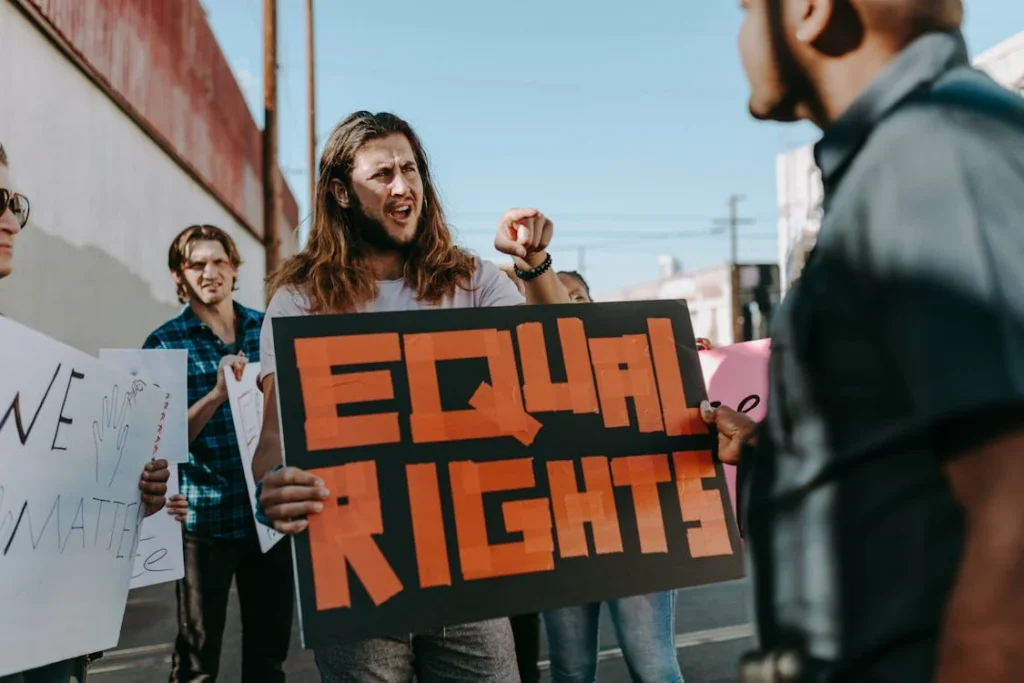
The Judiciary’s Role in Protecting the Dignity and Human Rights of Persons with Disabilities
Fighting Against Discrimination and Injustice
Beyond legal protections for education, employment, and accessibility, the judiciary has played a crucial role in upholding the dignity and basic human rights of persons with disabilities.
Many individuals with disabilities face discrimination, abuse, and neglect, often with little legal recourse. Courts have stepped in to ensure that persons with disabilities are treated with dignity and respect, reinforcing their rights to live independently and without fear.
A landmark case in this area was Deokinandan Prasad v. State of Bihar (2013), where the Supreme Court ruled that denying pension and benefits to a disabled government employee upon retirement was a violation of human rights.
The judgment stressed that financial security is a fundamental right for persons with disabilities, particularly in old age, and directed authorities to ensure timely payments. This case set an important precedent for securing social security benefits for disabled individuals.
Another major ruling was Janhit Abhiyan v. Union of India (2019), where the Supreme Court addressed discrimination against women with disabilities in healthcare settings.
The case involved reports of forced sterilizations of disabled women in some government hospitals, often performed without proper consent.
The court ruled that such practices were unconstitutional and directed the government to introduce stricter consent protocols for medical procedures involving persons with disabilities.
This judgment reinforced the right of persons with disabilities—especially women—to make decisions about their own bodies and healthcare.
Preventing Abuse and Violence Against Persons with Disabilities
Many persons with disabilities, particularly those with intellectual and psychosocial disabilities, are at higher risk of abuse—whether in institutions, homes, or workplaces.
Courts have repeatedly stepped in to protect their rights and ensure that perpetrators face legal consequences.
One of the most significant cases in this area was State of Tamil Nadu v. Asha (2018), where the Madras High Court ruled in favor of stronger legal protections for disabled individuals who face violence and exploitation.
The case involved a young woman with a hearing impairment who was sexually assaulted, and the court ensured that her testimony was taken with the assistance of sign language interpreters.
The ruling emphasized the need for accessible legal proceedings for victims with disabilities and set a precedent for inclusive justice.
Similarly, in Autism Society of India v. Union of India (2021), the Karnataka High Court ordered that all residential institutions housing persons with disabilities must be regularly monitored to prevent neglect and abuse.
The court found that many government-run homes lacked proper facilities and failed to protect residents from mistreatment. This judgment led to stricter oversight of disability care homes and introduced new reporting mechanisms for abuse cases.
Protecting the Right to Marriage and Family Life
Persons with disabilities often face societal barriers when it comes to marriage, family life, and personal relationships.
In many cases, families or authorities have attempted to block marriages involving persons with disabilities, citing concerns over their ability to provide consent or care for a spouse.
The courts have repeatedly affirmed that persons with disabilities have the same rights to marry, raise families, and make independent life choices.
In Suchita Srivastava v. Chandigarh Administration (2009), the Supreme Court ruled that a woman with an intellectual disability had the right to decide whether to continue a pregnancy.
The case involved a state-run institution attempting to terminate her pregnancy without her consent.
The court ruled that forced medical decisions violated the fundamental right to personal liberty and bodily autonomy, reinforcing that persons with disabilities must have full control over their reproductive choices.
Another important case was Kavita Sharma v. Union of India (2020), where a blind couple was denied legal marriage registration by local authorities.
The Delhi High Court ruled that denying marriage rights based on disability was unconstitutional and ordered the authorities to register the marriage immediately.
The court stated that persons with disabilities must be treated as equal citizens in all aspects of life, including personal relationships.
Strengthening Legal Protections for Independent Living
Many persons with disabilities in India still live in institutional settings rather than in their own homes, often because of a lack of financial support or accessible housing.
Courts have emphasized the importance of independent living and community inclusion as a fundamental right.
In Common Cause v. Union of India (2022), the Supreme Court ruled that government agencies must create policies that support independent living arrangements for persons with disabilities.
This includes accessible housing schemes, home-based assistance services, and financial aid programs that allow individuals to live outside of institutions. The court’s ruling encouraged a shift toward community-based care rather than confinement in state-run homes.
These legal interventions have helped redefine the rights of persons with disabilities, ensuring that they are not just seen as beneficiaries of welfare but as individuals with full autonomy and dignity.
However, much work remains in ensuring that these judicial protections translate into real change in everyday life.
The Road Ahead: Strengthening Human Rights for Persons with Disabilities
The judiciary’s role in upholding human rights for persons with disabilities has been transformative, but continuous legal vigilance is needed to prevent discrimination and injustice.
Future legal efforts may focus on strengthening protections against workplace harassment, ensuring equal parenting rights for disabled individuals, and introducing stricter penalties for institutions that fail to provide proper care.
By continuing to uphold the dignity and rights of persons with disabilities, the Indian judiciary plays a vital role in shaping a society that respects, includes, and empowers every individual, regardless of their abilities.

The Judiciary’s Role in Strengthening Disability Rights in the Digital Age
Expanding Digital Accessibility and the Right to Information
As India moves toward a digital economy, access to online services, education, and employment opportunities has become increasingly important.
However, many persons with disabilities continue to face barriers in using digital platforms due to poor accessibility design.
The Indian judiciary has recognized the importance of digital inclusion and has intervened to ensure that the rights of persons with disabilities are protected in the online space.
A significant ruling in this area was National Association for the Blind v. State of Maharashtra (2019), where the Bombay High Court addressed the inaccessibility of government websites.
The case was filed after visually impaired users reported that key government services, including tax filing, railway bookings, and education portals, were not compatible with screen readers.
The court ruled that all government websites must comply with international accessibility standards, including the Web Content Accessibility Guidelines (WCAG). This judgment pushed government agencies to make digital services more inclusive.
Similarly, in Xavier’s Resource Centre for the Visually Challenged v. Reserve Bank of India (2020), the Supreme Court ruled that banking websites, ATMs, and mobile apps must be made accessible to persons with visual impairments.
The case highlighted how digital banking was excluding disabled customers due to unreadable captcha codes, lack of voice assistance, and touchscreen-only interfaces.
Following this judgment, many banks introduced accessible banking services, including talking ATMs and voice-enabled mobile banking apps.
Ensuring Equal Access to Online Education
The COVID-19 pandemic accelerated India’s transition to digital learning, but students with disabilities were disproportionately affected due to the lack of accessible online education platforms.
Many visually impaired students struggled with online course materials that were not screen-reader friendly, while deaf students were unable to follow video lectures that lacked captions or sign language interpretation.
In response, the Delhi High Court ruled in Siddharth Varma v. University Grants Commission (2021) that universities and online education providers must ensure that all digital learning materials are accessible to persons with disabilities.
The court directed educational institutions to introduce sign language interpretation, provide transcripts for audio-based content, and develop more inclusive digital classrooms.
This ruling marked a major step in recognizing the right of disabled students to equal access to education in the digital age.
Addressing Workplace Digital Barriers
Employment opportunities are increasingly dependent on digital skills, yet many workplaces fail to provide accessible software, communication tools, and work-from-home accommodations for employees with disabilities.
Courts have recognized this as a growing concern and have directed employers to adopt inclusive digital policies.
In Amit Jha v. Union of India (2022), the Supreme Court ruled that workplaces must provide reasonable accommodations for employees with disabilities in remote and digital work environments.
The case involved a software engineer with a motor disability who was denied work-from-home options despite being able to perform his job remotely.
The court emphasized that denying accessible work arrangements amounts to discrimination and ordered the company to revise its policies.
Strengthening Cybersecurity Protections for Persons with Disabilities
With the increasing use of online services, persons with disabilities also face risks related to cybercrime, fraud, and digital identity theft. Courts have begun addressing the need for stronger cybersecurity protections tailored to the needs of disabled individuals.
In Kavita Sharma v. Cyber Crime Unit (2023), the Delhi High Court ruled that law enforcement agencies must provide disability-friendly reporting mechanisms for cyber fraud cases.
The judgment directed police departments to create accessible complaint filing systems, ensuring that visually impaired or hearing-impaired individuals could report online crimes without barriers.
The Future of Digital Inclusion in Disability Rights
The judiciary’s proactive approach in addressing digital accessibility has created new opportunities for persons with disabilities to participate in education, employment, and public services.
However, challenges remain in ensuring that private sector companies comply with accessibility requirements, that online platforms continue to improve usability for disabled users, and that emerging technologies like artificial intelligence and virtual reality are designed with inclusion in mind.
Future legal interventions may focus on ensuring that India’s digital transformation does not leave persons with disabilities behind.
Courts may push for stronger compliance with accessibility laws, promote incentives for businesses to adopt disability-friendly technology, and further strengthen the right of disabled individuals to participate fully in the digital world.
Conclusion
The Indian judiciary has played a crucial role in strengthening disability rights, ensuring that legal protections translate into real-world change. From employment and education to social security and digital accessibility, courts have upheld the rights of persons with disabilities and held institutions accountable for discriminatory practices. Landmark judgments have not only enforced existing laws but have also expanded the scope of rights, making inclusion a legal and social priority.
While significant progress has been made, challenges remain. Many laws are not fully implemented, accessibility gaps persist, and discrimination continues in various forms. The judiciary must continue to push for stronger enforcement, and society must actively support disability inclusion.
Moving forward, greater awareness, stricter policy enforcement, and proactive legal interventions will be essential in building a truly inclusive India. The judiciary’s role will remain vital in ensuring that disability rights are not just acknowledged but are actively protected, empowering persons with disabilities to live with dignity, independence, and equal opportunities.



